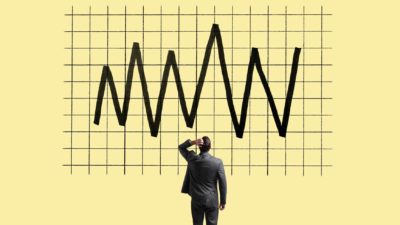Yes, it's that time of year again.
No, not Christmas, though it is that time of year, too.
And no, not cricket, though the lack of sport since the end of the footy season has been tough to cope with, and I can't wait for the Test series against Pakistan to begin.
No, I mean that other time of year.
The time when the news cycle slows to a crawl as pollies, companies and their PR flacks take annual leave.
And the time when we come to the last stage of our annual trip around the sun, and prepare to turn another page in the calendar.
Which means?
Which means, unfortunately, those who like making predictions are getting excited, and those who are looking to fill news pages and radio and television minutes are getting desperate (and I mean that kindly…).
Yes, get ready for 'predictions season'.
And yes, I mean 'ready' rather than 'excited'.
See, I'm an avid collector of quotes. One of my favourites comes from John Kenneth Galbraith:
"Pundits forecast not because they know, but because they are asked."
These days, we can add '… or because it's in their job description' in many cases.
I'm extraordinarily lucky. Despite my title and role as Chief Investment Officer here at The Motley Fool, I work for a company that confers me two specific advantages.
First, our business model doesn't depend on me churning out forecasts.
Second, they let me say 'I don't know' when, well, I don't know.
That shouldn't be unusual.
Unfortunately, it is.
In economics in general, and finance in particular, there's an expectation that so-called (or self-proclaimed) experts should have a view on everything.
What interest rates will do next.
Where the market will be by next Christmas.
Whether the price of oil will rise or fall in the next month.
And, most commonly in my line of work, handing out '12 month price targets' for individual companies' shares.
Don't get me wrong; if these things were knowable, I'd pay very good money to know them.
But… well… they're not.
Which should stop people trying to predict them.
But… well… it doesn't.
And so here we are.
To be a little serious for a second, predictions fall into two categories:
1. Accurate, but useless
2. Wrong.
The second category hopefully is self-explanatory.
The former, less so, but important. See, If my boss told me to make a prediction about the ASX for next year, and I was worried about career risk (i.e. getting fired for being wrong), you know what I'd do?
I'd make a middling forecast, roughly in line with historical averages.
I'm likely to be roughly right, fairly often (it's the nature of averages) and when I'm wrong, I'd say 'well, sure, but no-one else saw it coming, either'.
Which kinda defeats the point, right?
But there's also a third, potentially pretty destructive, category:
3. Right, (very) occasionally.
They're the 'big call' gurus. The ones who 'predicted' some seismic event. And who, almost without exception, had never done it before or since.
Or who are 'right' about an outcome because they'd been saying the same thing for years, incorrectly, and finally, like the broken clock that's right twice a day, were in the right place at the right time.
Now, lest you think I'm just bagging those self-proclaimed (or popularly-elected) 'gurus', I'm not.
Well, okay, I am a little: the hubris can make them believe their own press, and to too-highly value their own predictions.
But more generally, my intent is to warn you off taking these things too seriously.
And, more importantly, from doing anything as a result.
My approach?
I am to be roughly right, rather than precisely wrong.
To apply the broad lessons of history rather than try to be too clever by half.
I don't know where the ASX will be at the end of 2024. No-one does. But, I do know that share prices tend to rise over time.
I know that quality businesses with defensible characteristics tend to survive and thrive.
I know that interest rates, like market sentiment, tend to be volatile and often cyclical.
I know that dollar-cost averaging tends to work wonderfully.
I know that compounding is poorly understood, too often ignored, but immensely powerful.
I know that, historically, one year in three the stock market falls. But that it rises the other 2 years.
I know that 'timing the market' is stupidly hard, approaching impossible, and that most people shouldn't try.
I know that 'trading' stocks relies on second guessing what others might think of a company's share price in a day, week, month or year.
I know that investing, by contrast, relies on understanding that finding new and better solutions to new and old problems tends to create value for companies and their shareholders.
I don't, however, have a clue where the market will be by the end of next week, month or year.
No-one does.
And, I'd suggest, if they say they do, they're probably lying to you, or themselves.
That probably sounds harsh. I don't mean it to. But it's an important point.
Because we humans hate uncertainty. We'll do anything to replace it with 'certainty', no matter how tenuous.
It's why we examined chicken entrails, and consulted oracles.
It's why people go to psychics and use tarot cards.
But can I suggest that the path to successful, long-term wealth creation includes accepting that the future is inherently unknowable and that we need to make our peace with that.
And then, rather than predicting, taking a course of action that instead relies on doing things that, individually and collectively, make long term success 'most likely'.
Such a prescription isn't going to put me on the best-seller list. It's not going to earn me the rank of 'guru'. I'm not going to collect a group of sycophantic fellow-travellers who all 'want to believe'.
And that's totally okay by me.
Instead, I hope to be Aesop's tortoise. I hope to encourage you to do, and be, the same.
I expect that regular saving and investing, in a diversified group of quality companies and ETFs, will help us amass a comfortable multi-decade compound return without relying on predictions that instead risk meaningful damage, if I'm wrong.
If you're looking for Aesop's hare, instead, I wish you luck. I fear the result will be the same for many would-be hares. Yes, some will get lucky. A few might even be 'right'. And many will be left – I expect – ruing the fact they let a hubristic quest for perfection and precision ruin their chances of 'imperfect but very, very good', instead.
Choose wisely. And treat predictions accordingly.
Fool on!









